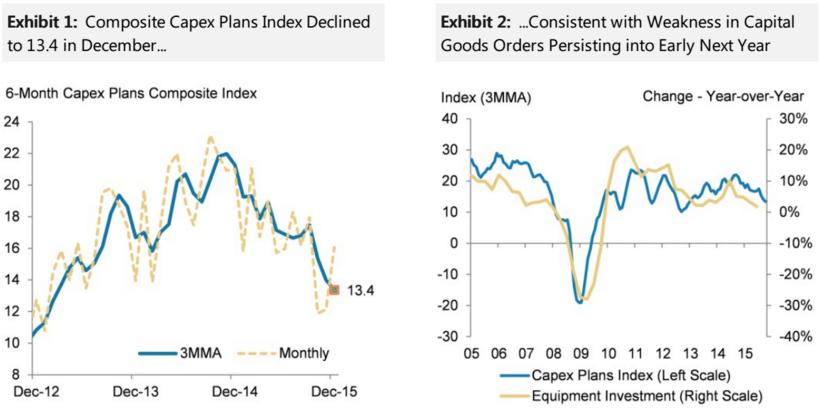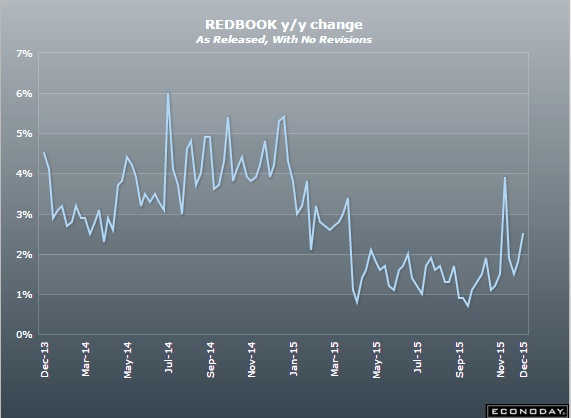Not good for Q4 GDP. Remember, lower oil prices were supposed to reduce our trade deficit…
;)
International Trade in Goods
Highlights
November’s international trade goods deficit narrowed to $60.5 billion from the revised $63.0 billion in October. October’s estimate previously was minus $58.4 billion. Expectations were for a deficit of $60.9 billion. Both exports and imports continued to decline on the month. Goods exports were down 2.0 percent while imports were 1.8 percent lower. Weak categories for imports were industrial supplies & materials and capital goods excluding auto. Export categories showing weakness include foods/feeds/beverages, industrial supplies and consumer goods excluding autos.
This is from Morgan Stanley. Capital expenditures are generally a large source of agents spending more than their incomes, offsetting those spending less than their incomes. This is not good- orders back to 2008 types of levels:

As before ‘the beating will continue until morale improves’:
Opposition to Japan’s sales tax hike falls below 50%
Dec 28 (Nikkei) — Public opposition to an April 2017 consumption tax increase has declined after the ruling coalition agreed on a food exemption backed by a majority of eligible voters, the latest Nikkei Inc./TV Tokyo poll shows. At 47%, fewer than half of respondents to the weekend poll opposed the tax increase, down 9 percentage points from October. Support for raising the tax gained 6 points to 42%. The tax hike will take the rate to 10%. Prime Minister Shinzo Abe’s Liberal Democratic Party and coalition partner Komeito seek to keep the tax on food, excluding alcohol and restaurant meals, at the current 8%.
Sales growth improving some from depressed levels:

Lots of similar cuts for next year, as oil related spending reductions continue:
Saudis Plan Unprecedented Subsidy Cuts to Counter Oil Plunge
Dec 28 (Bloomberg) — Saudi Arabia reduced energy subsidies and allocated the biggest part of government spending in next year’s budget to defense and security. Authorities announced increases to the prices of fuel, electricity and water as part of a plan to restructure subsidies within five years. The government intends to cut spending next year and gradually privatize some state-owned entities and introduce value-added taxation as well as a levy on tobacco. The government recorded a budget deficit of 367 billion riyals ($98 billion) in 2015. That’s about 16 percent of gross domestic product.

